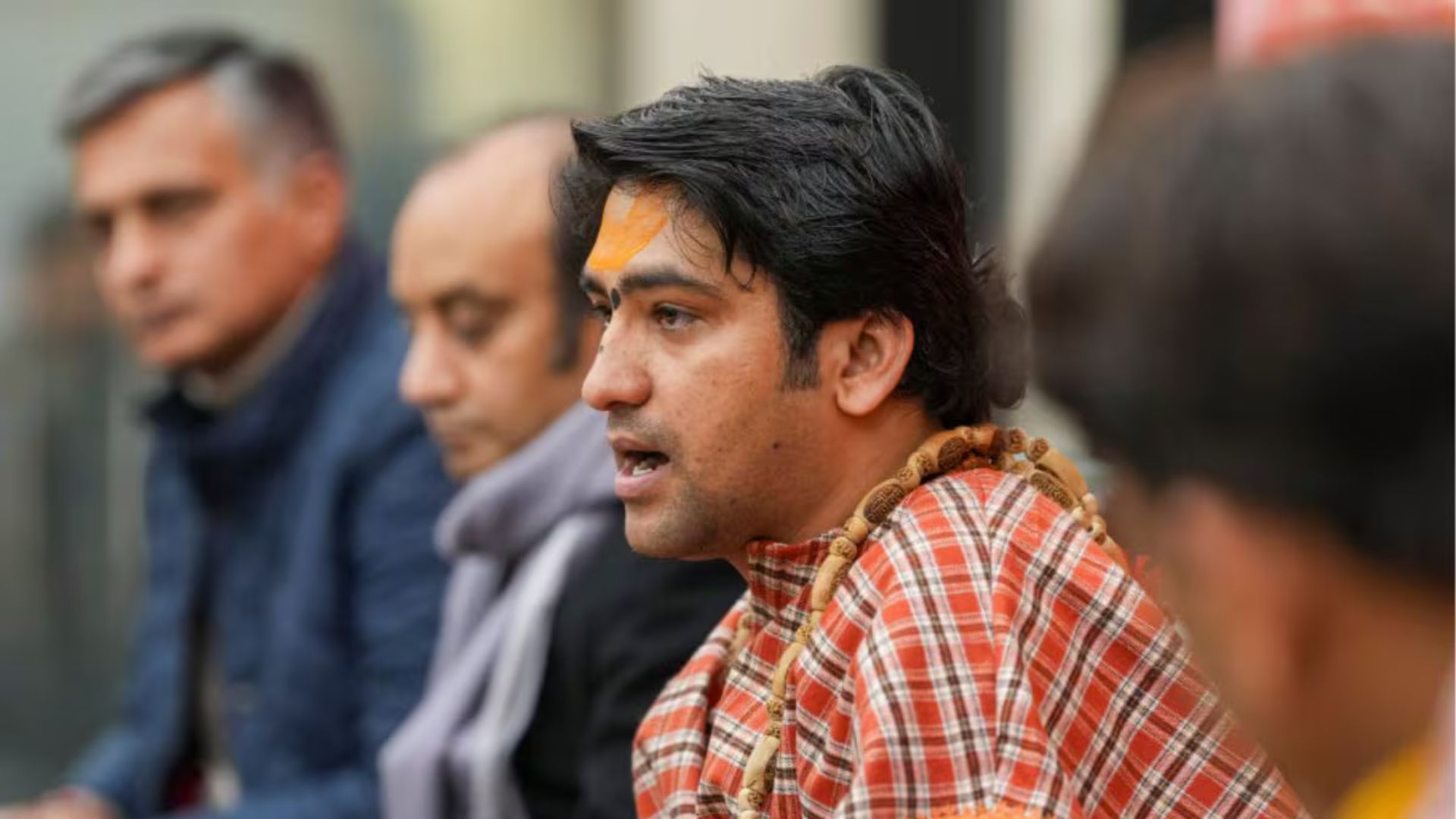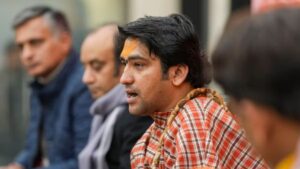Spiritual leader Dhirendra Krishna Shastri, the Peethadheeshwar (head) of Bageshwar Dham, has stirred controversy with his remarks regarding the entry of non-Hindus at the upcoming Maha Kumbh Mela.
With preparations underway for the event, set to begin on January 13 in Prayagraj after a 12-year break, Shastri’s comments have sparked concerns among various communities. During the groundbreaking ceremony for the Lord Hanumana Temple in Kawardha, Chhattisgarh, Shastri made a bold statement against allowing non-Hindus to attend the festival, quoting, “Mere angne mein tumhara kya kaam hai,” a line popularized by a song from the 1981 Amitabh Bachchan film Laawaris.
He asserted that those unfamiliar with Sanatan Dharma, the Hindu faith and its worship practices, should not participate in the Maha Kumbh Mela, emphasizing that “those who do not know about this… will definitely destroy it.”
Shastri also blamed non-Hindus for reported incidents of spitting and public urination at past events. “Somewhere there was a spitting incident, somewhere there was a urine incident… This proves that there may be some conspirators, so entry of non-Hindus should be banned in Maha Kumbh,” he stated.
He further insisted that individuals knowledgeable in Sanatan Dharma should oversee the festival’s management to preserve its sanctity, asserting, “It will be right if this work is given to those who have knowledge of Sanatan Dharma, know about Hindu religion.”
His remarks have ignited a debate, prompting questions about the potential effects on community relations during this significant religious gathering. The Maha Kumbh Mela is expected to draw millions, providing spiritual enrichment and economic opportunities for numerous vendors and service providers.
As Uttar Pradesh initiates various training programs to boost tourism and prepare local vendors for the influx of visitors, the discussion surrounding Shastri’s comments continues, shedding light on the complex intersection of religion, culture, and community at this important event.














